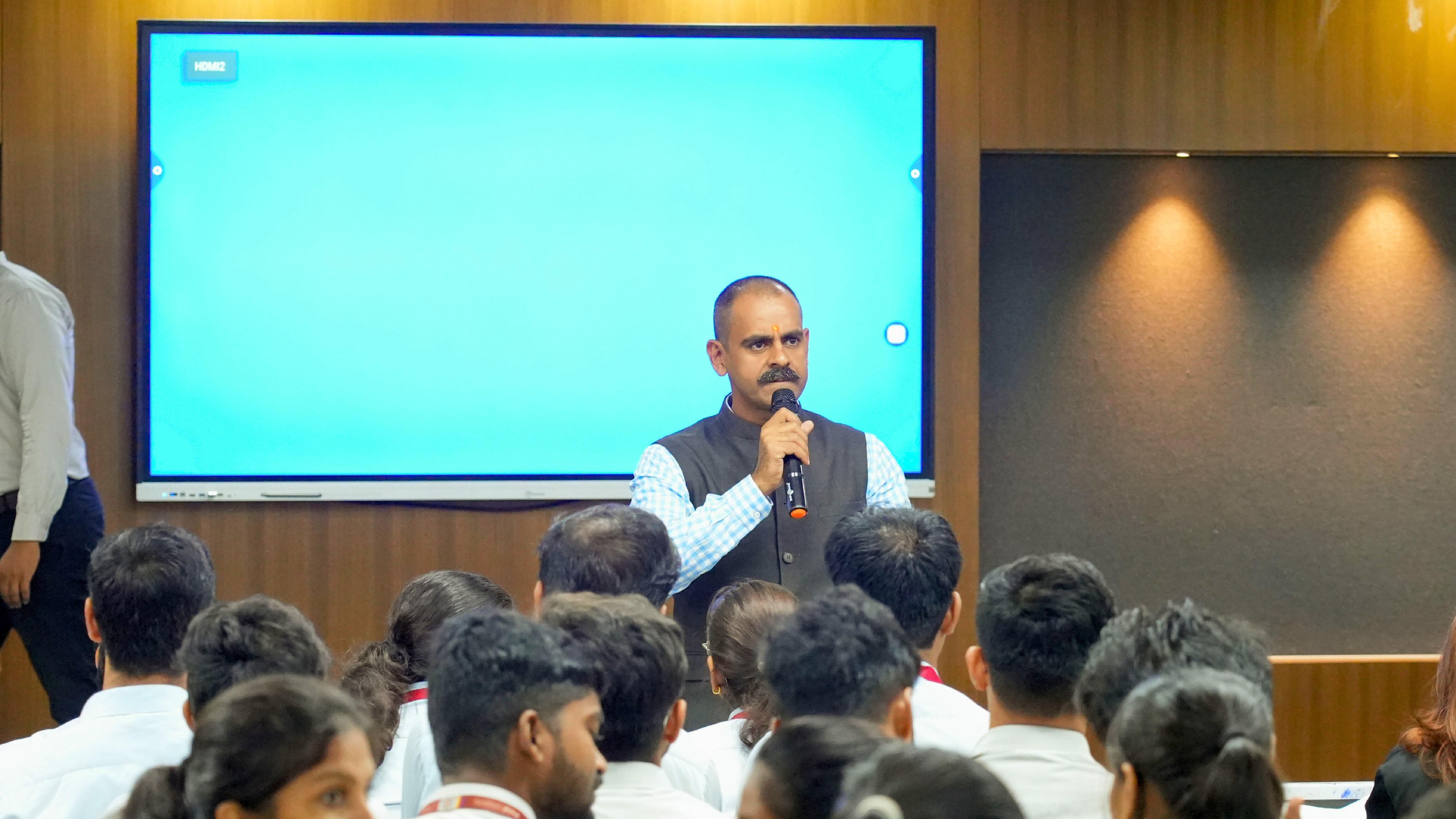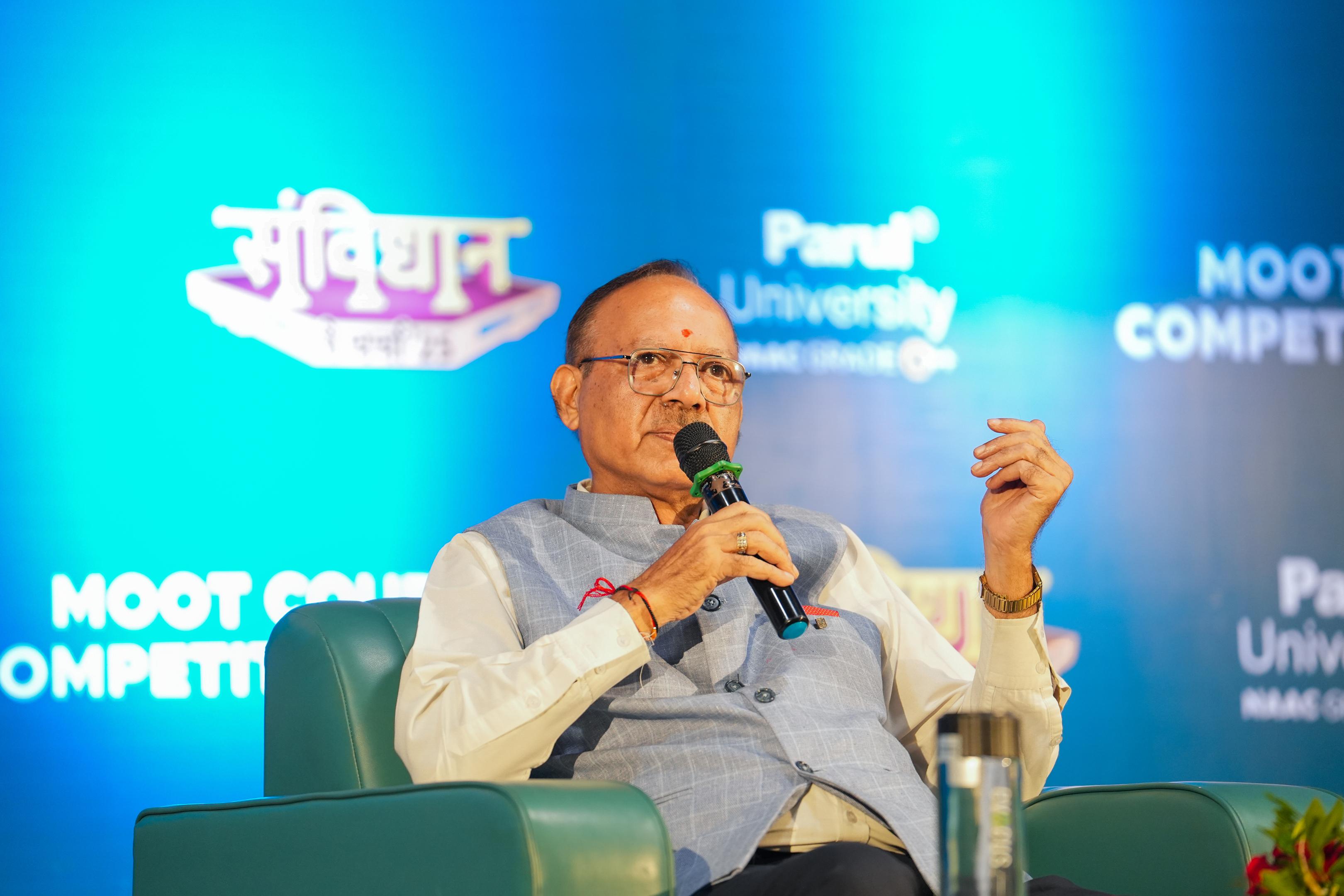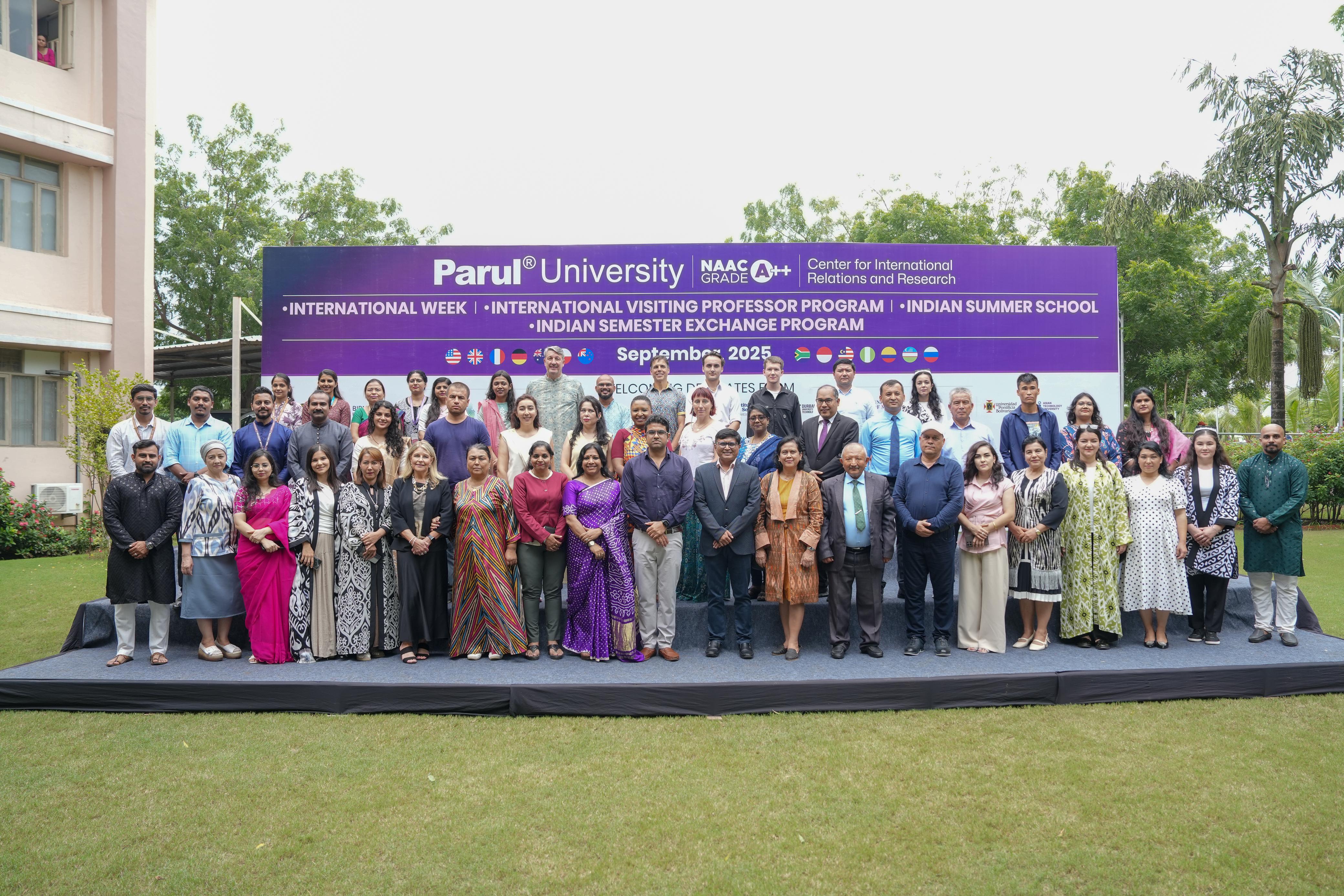A question lingers in an age in which algorithms can imitate creativity and artificial intelligence can produce poetry: what do students actually learn when they interact with machines and literature? Parul University attempted to answer this during the Indian Summer School 2025, held in collaboration with Asian Technology University, Uzbekistan.
A dedicated group of five students and one faculty member participated in a program that blended culture diplomacy with training in global leadership, academic research with historical excursions, and coding labs from September 1st to September 14th, 2025.
"Tell me and I forget, teach me and I may remember, involve me and I learn."
- Benjamin Franklin
A foundational course in artificial intelligence was at the centre of the curriculum. The history, important ideas, and potential directions of artificial intelligence were examined in sessions presented by academics such as Prof. Bhim Singh and Dr. Sanjay Agal. Students experimented with real-world coding in both supervised and unsupervised learning, while simultaneously studying ethics, accountability, and the social effects of developing technology.
What made this experience unique?
AI was taught as a lens for examining creativity and culture, rather than only as a technical subject. This is the nature of the interdisciplinary dimension. Debates about originality, authorship, and the changing dynamic between humans and machines were sparked by exercises in which students wrote poems using AI technologies. The result was not merely scholarly articles and cultural analyses, but also imaginative AI-driven ventures that pushed the envelope.
The Summer School also placed a strong emphasis on how culture shapes responsible education. Through workshops on yoga, mindfulness, Ayurveda, classical music, dance, and hands-on festival immersion, Uzbek delegates immersed themselves in Indian customs. Through visits to historic locations like Champaner and the Lakshmi Vilas Palace, participants were able to observe how knowledge is embodied in history.
Instead of being ornamental additions, these events served as diplomatic tools, promoting mutual understanding, respect for cultural variety, and the development of non-political alliances. At the conclusion of the program, students presented their critical reflections on their experiences in cross-cultural reports.
In addition to acknowledging their subject knowledge, each participant received a Certificate of Participation and a Global Competency Certificate, which recognised their preparedness to participate in international academic settings. More significantly, they took home critical soft skills like leadership, teamwork, and intercultural communication that will be crucial in the global workforce.
Parul University was positioned as a centre where education becomes a form of cultural diplomacy by placing technology within a humanistic framework and culture within an academic discourse. The Indian Summer School 2025 was not just about learning AI or celebrating culture; it was about creating global citizens.
Looking ahead, if machines can now write poetry, will the greatest human skill be learning to ask the right questions?
[Indian Summer School 2025, Parul University Summer School, Asian Technology University Uzbekistan collaboration, Artificial Intelligence in Education, AI and Literature interdisciplinary learning, Global leadership training in India, International student exchange program India, Academic diplomacy and cultural exchange, AI creativity and authorship, AI ethics and social impact]

.jpg)

.jpg)

.jpg)


